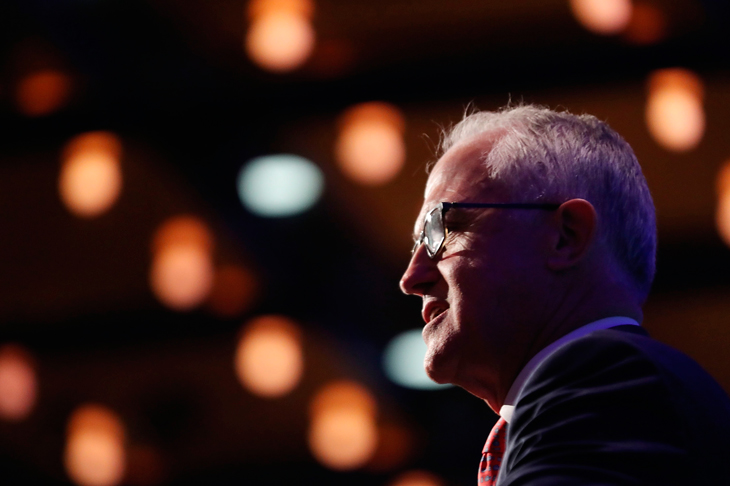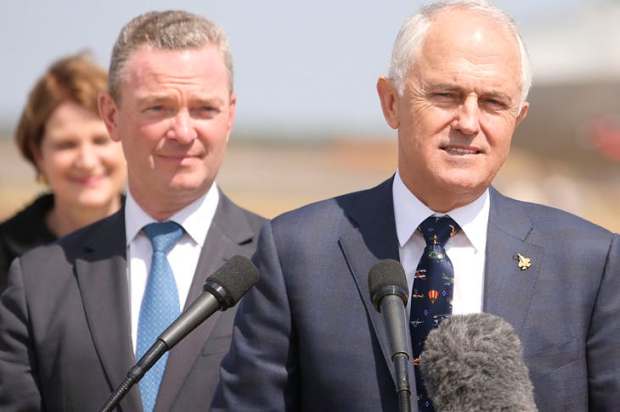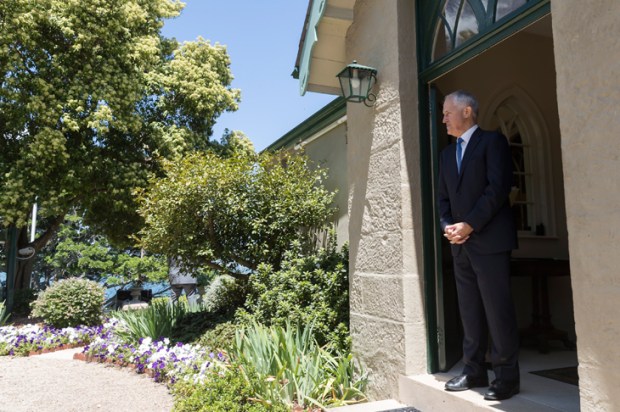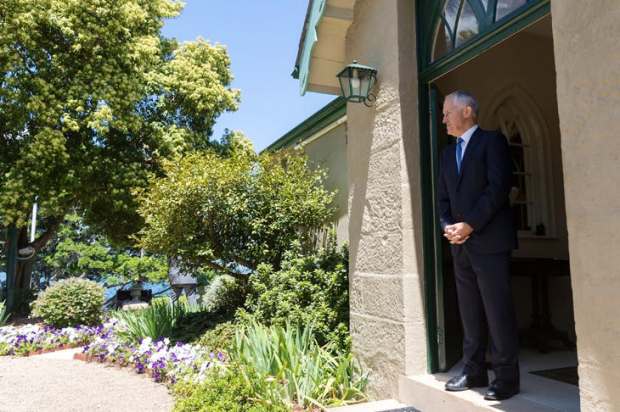It may be far too early to declare Malcolm Turnbull a potential winner of the next federal election but it’s not too early to declare that it’s now a real contest.
Despite Prime Minister Turnbull’s long losing run in Newspoll (we’re up to 32 now), with a strong and united federal election campaign the gap is now bridgeable and there’s every chance that the super-Saturday of by-elections will give the Liberals up to three extra seats.
With Georgina Downer (daughter of Liberal scion Alexander) as the candidate for Mayo in South Australia and with the Xenophon party imploding, it would be extraordinary if the Libs failed to regain what was once a safe seat.
With One Nation preferences almost certain to go to the LNP this time in the Queensland seat of Longman, that should be a win too. And with the former MP Brett Whiteley likely to be the candidate in the seat of Braddon in Tasmania’s north-west and the state Libs in good shape, there’s a fair chance of victory there too. Who would have believed it just a couple of months back?
Turnbull has certainly had his fair share of luck lately. A surge of revenue from a lift in the terms of trade and from companies that have largely exhausted their GFC tax-loss carry-backs meant that last week’s Budget could cut tax, boost spending and still deliver a faster surplus (at least if the growth assumptions turn out to be correct).
What was there not for the public (if not for reputable economists) to like in a Budget that made no tough decisions whatsoever?
Net savings measures totalled just $404 million out of budgeted spending over the forward estimates of more than $2,000 billion! And the citizenship fiasco that engulfed the government last year has now come back to bite Bill Shorten who was far too complacent about Labor’s checking the bona fides of all its federal MPs.
In fact, it is currently Bill Shorten’s leadership that is now under more pressure than Turnbull’s. Despite a budget reply that announced almost twice the tax cut for low and middle income earners, Labor now looks vulnerable because, under Shorten, it just keeps moving further and further to the left. As Bob Hawke and Kevin Rudd demonstrated, the way for Labor to win government is to move to the centre. Hawke famously promised to work with business as well as with unions via a consensus-building national summit; while Kevin Rudd pretended to be a younger, slightly more hip version of John Howard with his (false) claim to be a ‘fiscal conservative’ and his rhetorical demand that the ‘reckless spending must stop’.
Probably because he’s never felt secure, despite the Rudd-rule that these days it takes a 60 per cent vote in caucus to roll a Labor leader, Shorten has given in repeatedly to the militant unions on economic policy and the green-Left on social policy.
At the last election, Shorten should have supported tougher action against rogue unions as a poacher-turned-gamekeeper. He should have used some of the revenue from Labor’s crackdown on negative gearing and capital gains tax concessions to return to surplus faster than the government.
Instead, he refused even to criticise the Victorian government’s union-driven attack on volunteer fire services and he promised to spend significantly more than the Coalitions extra revenue on schools and hospitals.
Since then, Shorten has been even more obviously hostage to the most irresponsible elements in his party. He’s promised to make it easier for essential services workers to go on strike and to overrule the Fair Work Commission on penalty rates.
He wants to restore the Road Safety Remuneration Tribunal, which was putting owner-drivers out of business, and to abolish the Australian Building and Construction Commission without any replacement cop-on-the-beat. He’s committed to funding the ‘safe schools’ gender fluidity programme masquerading as anti-bullying and he’s doubled down on Labor’s 50 per cent renewable energy target.
This is despite the evidence that unreliable wind and solar generation has put power prices through the roof and risked widespread blackouts.
Despite Malcolm Turnbull’s failure on the Newspoll test that he set for his predecessor, no one is stalking the current PM in the way he himself stalked Tony Abbott.
The political commandment that Turnbull broke at great cost to the Liberal party – ‘thou shalt not kill a democratically elected prime minister’ – is now what protects him. It’s hard for the ABC and Fairfax to criticise a leader who’s taking the Liberals to the left and it’s hard for News Ltd to criticise Turnbull when the alternative is Shorten who’s looking more and more like Jeremy Corbyn down under.
All of this could change if Shorten were to give centre-right voters reason to think well of him. But his Budget reply was just his latest distillation of the politics of envy. He attacked the government’s proposed corporate tax cut (especially for the banks) not once but 13 times, even though this used to be his own policy. And his spending proposals could have been lifted straight from the Greens: an extra $17 billion for schools (on top of the government’s own Gonski money); an extra $3 billion for hospitals; university places for anyone who wanted one; and a hundred thousand more TAFE places. Also, and predictably, the ABC would have its funding fully restored.
From time to time in Australia politics unexpected developments can provide crucial, vote-winning surprises.
To be honest, I never thought that anyone or anything could make Malcolm Turnbull look like an acceptable PM.
But that was before Bill Shorten started imitating Bob Brown rather than Bob Hawke.
Got something to add? Join the discussion and comment below.
Get 10 issues for just $10
Subscribe to The Spectator Australia today for the next 10 magazine issues, plus full online access, for just $10.
You might disagree with half of it, but you’ll enjoy reading all of it. Try your first month for free, then just $2 a week for the remainder of your first year.














Comments
Don't miss out
Join the conversation with other Spectator Australia readers. Subscribe to leave a comment.
SUBSCRIBEAlready a subscriber? Log in